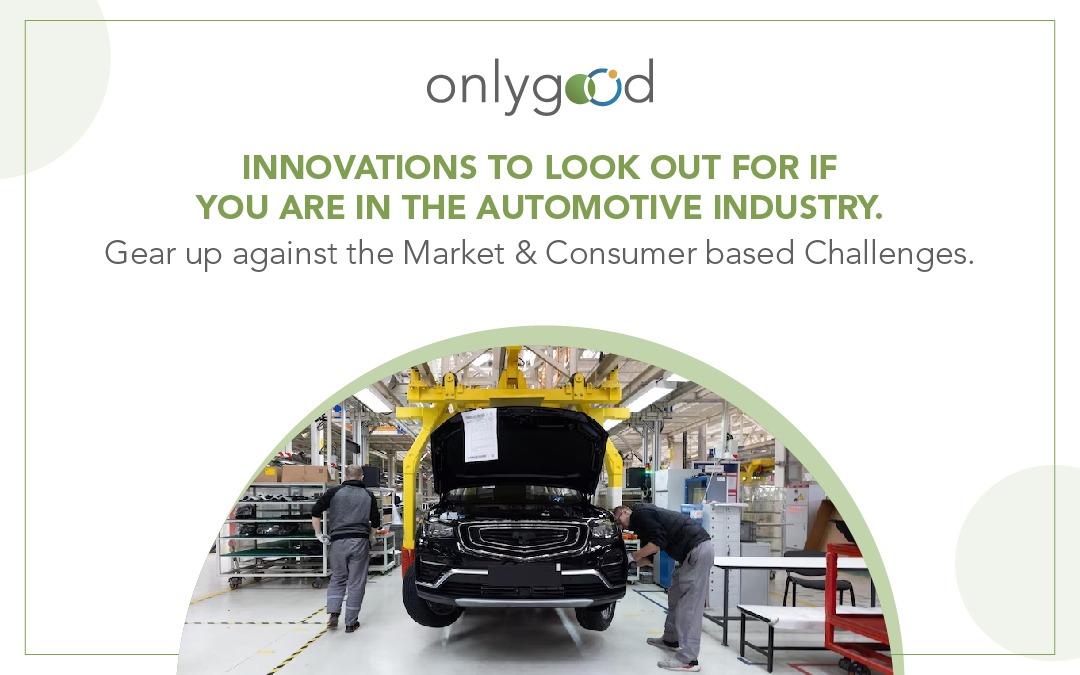The automotive industry is a global industry that designs, develops, manufactures, markets and sells motor vehicles, including cars, trucks, buses, and motorcycles. It is one of the largest industries in the world and plays a significant role in the global economy. The automotive industry is constantly evolving, with new technologies and innovations being introduced regularly. Some of the recent trends in the industry include the development of electric and hybrid vehicles, autonomous driving technology, and the integration of digital and connected features in vehicles.
Challenges in Automotive Industry

The automotive industry is also a major contributor to employment and economic growth. It supports a vast network of suppliers, dealers, and service providers, and provides jobs to millions of people around the world. However, the industry also faces challenges such as changing consumer preferences, government regulations, and environmental concerns.
Technological advancements
The automotive industry is witnessing rapid technological advancements, such as electric vehicles, autonomous driving, and connected cars. The industry must keep up with these technological changes to remain relevant.
Increasing demand for safety
Safety is a key concern for consumers, and there is increasing demand for safety features in vehicles. Automakers need to invest in the development of safety technologies to meet these demands.
Environmental concerns
Environmental concerns are becoming increasingly important, and automakers need to focus on reducing emissions and producing more eco-friendly vehicles. Governments are also implementing stricter regulations to reduce emissions, which can be a challenge for the industry.
Supply chain disruptions
The automotive industry relies on a complex global supply chain, and disruptions can occur due to various factors such as natural disasters, trade disputes, and pandemics. Such disruptions can have a significant impact on production and sales.
Shortage of skilled labour
The automotive industry requires a skilled workforce for design, engineering, and manufacturing. However, there is a shortage of skilled labour in some areas, which can lead to delays and higher costs.
Economic uncertainty
Economic uncertainties, such as recessions, trade wars, and geopolitical tensions, can have a significant impact on the automotive industry. Automakers need to be prepared to navigate these uncertainties and adjust their strategies accordingly.
Innovation in the Automotive Industry

The automotive industry is constantly evolving and innovating, with new technologies and trends emerging all the time. We can easily observe this innovation as mentioned below.
Artificial Intelligence
Artificial intelligence technologies such as machine learning, deep learning, and computer vision find applications in robotic automation within the automotive industry. AI is a key component in the development of self-driving cars. Machine learning algorithms can be used to train autonomous vehicles to recognize objects and make decisions based on sensor data.
Big Data & Analytics
Customer automotive data finds applications in driving sales, optimising supply chains, and enhancing product design for newer vehicles. It enhances the variety of vehicles and makes it possible to design more genuinely according to people’s preferences.
Human-Machine Interfaces (HMI)
Human-machine interfaces use voice-based or haptic feedback to operate vehicles. These expand the scope of how and what aspects of a car users control. HMI plays a critical role in enabling drivers to interact with the various features and functions of a vehicle, including the audio system, climate control, navigation system, and more.
Blockchain
Blockchain includes sharing vehicle data over a secure network for connectivity and shared mobility solutions such as ride-hailing, urban transportation, and deliveries. Blockchain technology has the potential to revolutionise the automotive industry by enabling secure, transparent, and decentralised transactions.
Internet of Things
In the automotive industry, IoT enables secure communication between vehicles as well as infrastructure components. IoT enables cars to be connected to the internet, allowing for real-time communication with other vehicles, traffic signals, and other infrastructure. This can help to improve safety by alerting drivers to potential hazards and reducing the likelihood of accidents.
After discussing both the challenge and innovation aspects of the Automotive Industry, we need to know the necessity for our business. You can make your business more sustainably developed with OnlyGood and taste the success from there on. We will provide a carbon calculator to estimate your carbon footprint and suggest tools to reduce it in the best possible manner. You can take a carbon accounting management service to get your business things done smoothly.

With Onlygood, you can request a free demo for carbon emissions-related problems. Here’s the link for the same –
https://onlygood.ai/request-a-the demo/
You can also visit our website for more information. Here’s a link for the OnlyGood website visit – https://onlygood.ai/

